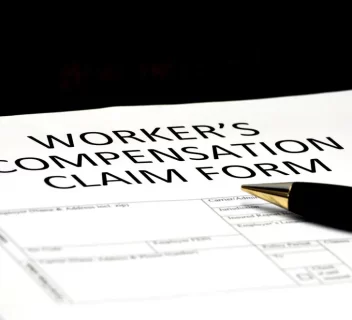What to Do When Injured on the Job
According to the U.S. Department of Labor, there were approximately 2.9 million nonfatal workplace injuries and illnesses reported by private industry employers in 2015.
Sustaining an injury on the job can be a traumatic experience, but all states require companies to have workers’ compensation insurance to protect employees who suffer a workplace injury or illness, regardless of fault. The steps to take after a workplace accident may differ slightly by state or employer.
The following points are general guidelines on how to proceed if you are injured on the job:
- Get the necessary medical treatment or first aid as soon as possible. The Workers’ Compensation Board must authorize the health care provider taking care of your injury, except in emergency situations.
- Report the injury to your supervisor or the company nurse, making clear that your injury was caused by a work-related factor. This should be done as soon as your injuries have been treated. An injured employee who does not report the accident in writing within 30 days may lose the right to workers’ comp benefits.
- Make sure your supervisor prepares a company accident report. If, for any reason, the supervisor will not prepare the report, you should write a letter stating the facts of your accident/illness and give a copy to the supervisor.
- Next, get a copy of the accident report and keep it in a safe place.
- File a worker’s comp claim. Typically, an employer must offer you a claim form immediately after learning about your injury. Until this claim form is completed, companies have no legal obligation to provide benefits. If for some reason your company cannot or will not provide this form, contact your state Workers’ Compensation Office. Fill out the “Employee” section, sign, and date it. Keep a copy of this form for your records. Ask your employer to fill out the “Employer” section and to provide you a copy of the completed form. If your employer refuses, it may be time to contact a workers’ comp lawyer.
- While your claim is being evaluated, make sure to follow all medical directions. If you don’t, your employer may argue that you are not serious about getting better and getting back to work.
- If you do not like the outcome of the claim or your employer disputes your benefit claim, you may seek a hearing with the Worker’s Compensation board.
You may be Entitled to Benefits
Workers’ compensation benefits cover employees for lost wages while recovering from work-related illnesses and injuries. The benefit amount is typically two-thirds of an employee’s weekly wage. Disability benefits are classified as 1) Temporary Total Disability, 2) Temporary Partial Disability, 3) Permanent Total Disability, 4) Permanent Partial Disability, and 5) Death Benefits.
Workers’ comp does not cover personal injuries or punitive damages, which an injured employee may be entitled to. In some instances, employees injured on the job can file a lawsuit in civil court to recover additional damages.
Call today for a free consultation with an attorney in our network today to understand your legal rights.




